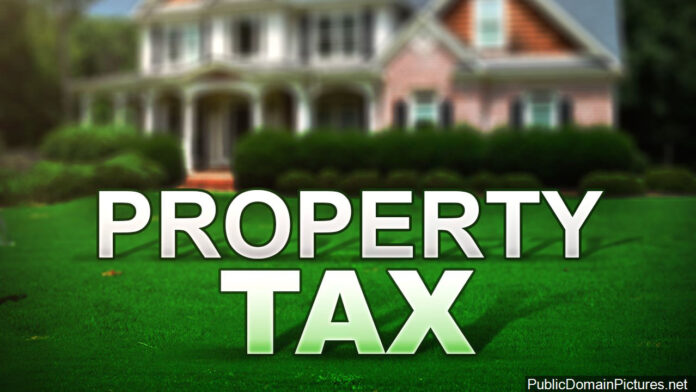Nobody likes getting a letter saying their property has been reappraised upward, sometimes substantially so, especially in the midst of a pandemic and the economic misery it’s created.
But that cake has baked. Richard Molina, chief appraiser with the Cameron County Appraisal District, said he would have been happy to delay reappraisals if the Legislature had given him the authority to do so, but that no such authority has been forthcoming. So his office has done what the state requires it to do, which is to move forward with the district’s 2019-2920 reappraisal plan, which this year around involves all commercial properties in the county and about a quarter of the residential properties in Brownsville.
The district is charged with reappraising properties annually based on market value, though it’s such a big job that it has to be done in pieces, which means the county’s residential properties are reappraised about four years — five at most, Molina said. The office did half its commercial reappraisals last year and half this year, he said. Meanwhile, nobody had any idea a pandemic was on the horizon when the current plan was set in motion, though stopping the reappraisal process now wouldn’t be fair to property owners for whom the current round of reappraisals are already a done deal, Molina said.
“Could we have picked better timing? We couldn’t have picked it because we didn’t know it when we set up that plan,” he said. “We had to complete it. … Unfortunately, I know the pandemic is an issue that’s been on everybody’s how-could-we-have-done-it list.”
U.S. Rep. Filemon Vela, D-Brownsville, and other South Texas congressmen were among a delegation who signed a May 13 letter to Gov. Greg Abbott requesting that any increases, penalties and interest on property taxes for the current year be suspended, though Abbott kicked the issue back to local governments, responding that they’re responsible for setting property tax rates, not the state.
Molina pointed out that it’s not the appraisal district that sets tax rates. Rather, it only provides the update values, based on localized changes in the market, that the counties 42 taxing entities — the county, cities, the Port of Brownsville, school districts, municipal utility districts — use to set their tax rates, he said. His office gets an earful nonetheless from disgruntled property owners, Molina said.
“That’s fine,” he said. “We try to explain our purpose and the job we are required to do. It’s OK. I don’t mind it. We’re here for them if they need to discuss their values. That’s why we’re doing this during this process. It’s called the appraisal review board process. This is where they have the opportunity to protest their values or come and talk to us about it. We’re always glad to try to give them some explanation behind it. We just tell them how we derived the value more than anything else.”
The appeal process continues through mid-July, when the district certifies the tax rolls and they’re turned over to the taxing entities, Molina said.
Jesus Alanis of Brownsville, owner of six residential rental properties, is among those unhappy with his latest valuations. On four of those properties combined, the appraised values went up $50,000 this year, he said. His property taxes have doubled over the last 10 years or so, Alanis said, and it’s gotten to the point where he’s thinking about selling.
“I cannot double up my rent on my tenants over a period of 10 years,” he said. “It’s making me think twice about keeping my properties. Right now I’m my own handyman because I cannot afford to hire anybody.”
Alanis encouraged people who are having a hard time with their property taxes to contact their elected officials. He said he’s tried to no avail to reach out to Cameron County Judge Eddie Treviño Jr. for help, but chose not to go the appeal route with the appraisal district because he doubted it would do any good. Treviño, at a May 20 COVID-19 press conference, said he tells constituents with disputes over appraisals, or who are having a hard time paying their property taxes, that they should appeal through the appraisal district.
“Obviously it’s a concern,” he said. “It may be a problem for a lot of people who have been out of work for a while, or may have had their businesses shut down or closed for an extended period of time. We’re going to have to look at that over the next several weeks and months. We’ll be starting the budget process — we already have but basically be getting into it full time when June rolls around. I can’t say at this point what we’re going to do, but we know it’s a concern out there. I would remind everybody that the appeal process is the normal way to go with regards to that,” Treviño said.
Even as it is, without emergency relief for local governments from the federal government to make up for lost tax revenue resulting from the pandemic, the county may have to start cutting services and laying off personnel Treviño noted. The other option is to raise taxes, which really isn’t an option, he said.
“We don’t want to do that either, but obviously we’re making a lot of different contingency plans to try to address what shortage of revenues we may have,” Treviño said.
Meanwhile, as for the impact of the pandemic on property values themselves, it will be a while before that’s known, Molina said.
“Truthfully we won’t know how the pandemic is going to affect the market until sometime around next year, because it’s built off of the prior year’s data,” he said. “We’re waiting to see how did it affect the actual housing market, how did it affect the businesses. We’re going to find out. We just don’t have that answer just yet.”




